Oil price posts two-year highs - but how long can it last?
Brent rose above $59 a barrel this week, its best third-quarter showing since 2004

A free daily email with the biggest news stories of the day – and the best features from TheWeek.com
You are now subscribed
Your newsletter sign-up was successful
Oil price rises as Opec considers caps for Nigeria and Libya
24 July
The oil price has been volatile this morning, initially rising before hitting a one-week low amid speculation over the outcome of a meeting of the powerful Opec cartel today.
Ultimately, though, it appears to have broken higher and at the time of writing Brent crude, the international oil price, was around 1.25 per cent up for the day at $48.65 a barrel.
The Week
Escape your echo chamber. Get the facts behind the news, plus analysis from multiple perspectives.

Sign up for The Week's Free Newsletters
From our morning news briefing to a weekly Good News Newsletter, get the best of The Week delivered directly to your inbox.
From our morning news briefing to a weekly Good News Newsletter, get the best of The Week delivered directly to your inbox.
Its US counterpart West Texas Intermediate was up more than one per cent at $46.25 a barrel.
Earlier weakness had been related to an insistence by Saudi Arabia, the de facto leader of the Opec group, that there would be "no discussion of deeper oil output cuts", says Reuters.
Oil's rally to above $50 a barrel late last year came after Opec limited output to 32.5 million barrels a day, but ran out of steam earlier this year as traders doubted the reductions would rebalance the market.
At the end of last week the oil price dived 2.5 per cent in a single session after evidence Opec production could top 33 million barrels a day this month.
A free daily email with the biggest news stories of the day – and the best features from TheWeek.com
That's largely because Nigeria and Libya are excluded from the deal to limit production and have been ramping up production at the same time as US shale oil producers have increased drilling activity.
But the move higher today could be in response to comments from Saudi oil minister Khalid al-Falih that Opec will discuss bringing Nigeria and Libya into the production deal.
So, one of the main supply-side issues undermining Opec's efforts to push the price higher could be removed - but analysts are still not convinced this will be enough.
"Unless we see demand pick up pace, imposing a production cap on Nigeria and Libya will only be a 'feel-good' move, but not helpful in re-adjusting the supply-and-demand dynamic in the short run," Gao Jian, a SCI International energy analyst, told MarketView.
Oil price goes back above $50… briefly
21 July
The oil price returned to $50 a barrel for the first time in a month last night, on the back of a positive report from the US energy regulator.
According to the watchdog's latest weekly statistics, American crude oil reserves fell 4.7 million barrels last week, far more than the 3.6 million barrel draw expected by analysts, says the Daily Telegraph.
Brent crude, the international oil price, "scrambled back up to $50 a barrel" in response for the first time since June.
But it has since fallen back, losing ground in Asian trading overnight and again in London trading today. At the time of writing Brent was changing hands down 0.8 per cent for the day at $48.90 a barrel.
Reuters says sentiment turned negative after figures from a respected analyst, Petro-Logistics, showed Opec is "still flooding the market" with oil.
Despite committing to production curbs to keep output under 32.5 million barrels per day, increased pumping from Saudi Arabia, the United Arab Emirates and Nigeria will push this to 33 million barrels in July, reckons Petro-Logistics.
The Telegraph adds that Ecuador, a "relatively minor" producer in the Opec cartel, has also said it will lift output to "shore up the country's coffers".
Beyond Opec there is the ever-present threat of US shale oil increases, given that the industry is able to turn a profit at lower oil price levels and that drilling has been ramping up for months.
Coutts, the private bank, said shale oil trends will ultimately be the key determinant for the oil price in the months ahead as it mostly "becomes profitable" at around or not far below $50 a barrel.
"As a result we don't expect the oil price to move far from this level."
Oil price recovers, but market is 'on borrowed time'
19 July
Oil prices edged up today as traders recovered from anxiety about a surprise rise in US crude stockpiles.
Morning trading in London saw Brent crude up 19 cents on its previous closing price at $49.03 a barrel. In New York, West Texas Intermediate was up 14 cents at $46.54.
It followed yesterday's announcement from the American Petroleum Institute that US crude inventories rose by 1.6 million barrels last week, reversing analyst expectations for a decline of 3.2 million, Reuters reports.
Oil has become one of the year's worst-performing commodities, with prices down around 15 per cent and levels still barely half those of three years ago.
Despite a pledge from Opec, Russia and other countries to cut supplies, output has remained high, largely due to rising production from cartel members Nigeria and Libya, Reuters said.
Both are exempted from the deal to cut production by 1.8 million barrels between January 2017 and March next year.
According to the Financial Times, the oil price is "living on borrowed time" as it is replaced by natural gas and renewables.
Transport in particular will force down demand as carmakers turn to other energy supplies, says Min Zhu, chair of the National Institute of Financial Research at Tsinghua University in Beijing, a former deputy managing director of the International Monetary Fund.
Formerly oil-hungry China, for example, became the largest market for electrical vehicles in 2015, while earlier this month, Volvo said all its cars from 2019 would be electrically powered.
Bloomberg New Energy Finance predicts about 25 per cent of cars will be electric by 2040, The Independent reports, which has "promising implications for the fight against climate change".
Oil price stable but hopes of a recovery remain low
18 July
The price of oil remained stable today, with hopes of a recovery still low – and further indications that the Opec production cut is not working.
In London at 9.20am today, Brent crude was up 20 cents on its previous closing price at $48.62 a barrel. In New York, West Texas Intermediate was up 15 cents at $46.17.
The price of oil fell dramatically three years ago and has stayed low since, thanks to a massive global oversupply. With up to 94 million barrels being produced every day, there has simply been too much oil available for the price to stay high.
From a high of $112 per barrel in 2014, oil tumbled to just $30 a barrel in February last year. Since then prices have stayed around the $45-$50 per barrel mark.
The Opec nations, Russia and other major producers agreed to cut production late last year and there were hopes that the price might recover, at least to sit consistently above the psychologically important $50 per barrel mark.
But the cuts do not seem to have had the desired effect – and US production has increased to fill the gap.
Now Bloomberg reports that Ecuador has broken ranks with its fellow Opec nations, saying that it cannot afford to cut production and will not keep to the commitment.
Ecuador is a tiny oil producer – it accounts for less than 25 seconds of daily consumption, says Bloomberg – but its decision to admit it will not stick to the target could "create a dangerous precedent". And it’s one more reason to be pessimistic about a price recovery.
Many analysts believe that oil will not reach pre-slump highs again for several years, and some are starting to question whether it ever will.
Last week, BP boss Bob Dudley suggested prices would not recover until 2020. He warned: "The years of $100 oil will turn out to be an aberration."
Oil prices edge up after volatile trading
17 July
Oil prices edged up this morning in choppy trading, with traders still unconvinced that a production cut by Opec nations, Russia and other producers is enough to balance the market.
In London, Brent Crude was up 0.2 per cent on its previous closing price at $49.02 this morning while, in the US, West Texas Intermediate (WTI) had also risen 0.2 per cent to $46.63.
Prices have inched higher this month after it was reported that stockpiles had fallen by more than is normal at this time of year. With less oil available on the market, investors hoped it would fetch a higher price.
Another reason for cautious optimism has been a slower increase in the number of oil rigs producing the commodity in the US than expected. This week, only another two rigs came online, bringing the number currently drilling to 765, says Fox News.
Oil prices have tumbled over the past two years thanks to a massive global oversupply – at as much as 94 million barrels per day, there has been too much oil being produced to keep prices rising.
From a 2014 high of $112 per barrel, the price plummeted to just $30 a barrel in February 2016. Since then, there has been a modest but sustained recovery, with prices hovering around the $45-$50 per barrel mark.
Hopes the price might consistently top $50 per barrel earlier this year were dashed when production cuts by Opec nations and Russia were not sufficiently severe – and US production bounced back to fill the gap.
Last week BP boss Bod Dudley joined other industry bigwigs in suggesting there is no sign of a serious rally in prices in the near future. He suggested prices would not recover until 2020 and added: "The years of $100 oil will turn out to be an aberration."
-
 Tourangelle-style pork with prunes recipe
Tourangelle-style pork with prunes recipeThe Week Recommends This traditional, rustic dish is a French classic
-
 The Epstein files: glimpses of a deeply disturbing world
The Epstein files: glimpses of a deeply disturbing worldIn the Spotlight Trove of released documents paint a picture of depravity and privilege in which men hold the cards, and women are powerless or peripheral
-
 Jeff Bezos: cutting the legs off The Washington Post
Jeff Bezos: cutting the legs off The Washington PostIn the Spotlight A stalwart of American journalism is a shadow of itself after swingeing cuts by its billionaire owner
-
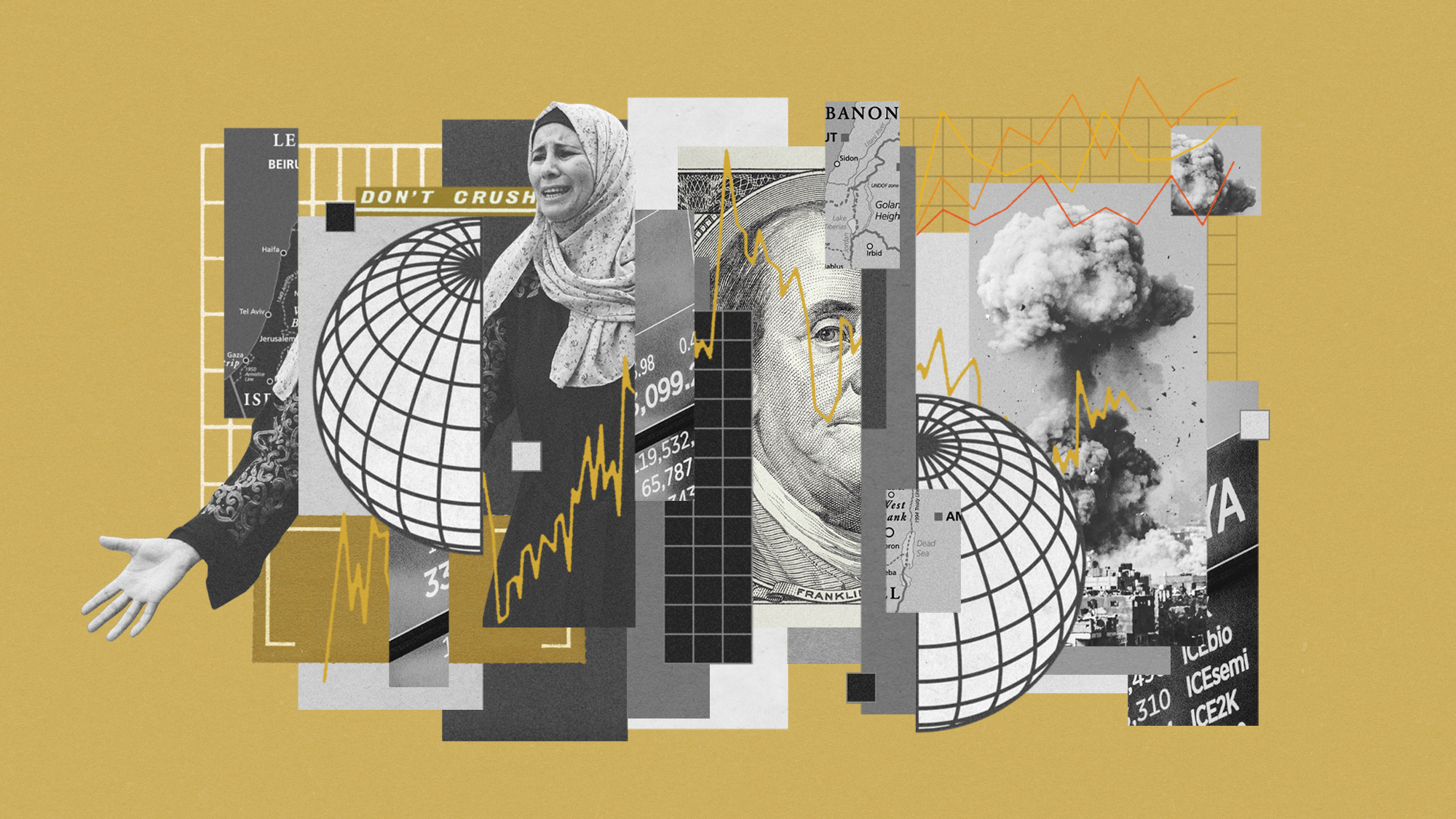 How might the Israel-Hamas war affect the global economy?
How might the Israel-Hamas war affect the global economy?Today's Big Question Regional escalation could send oil prices and inflation sky-high, sparking a worldwide recession
-
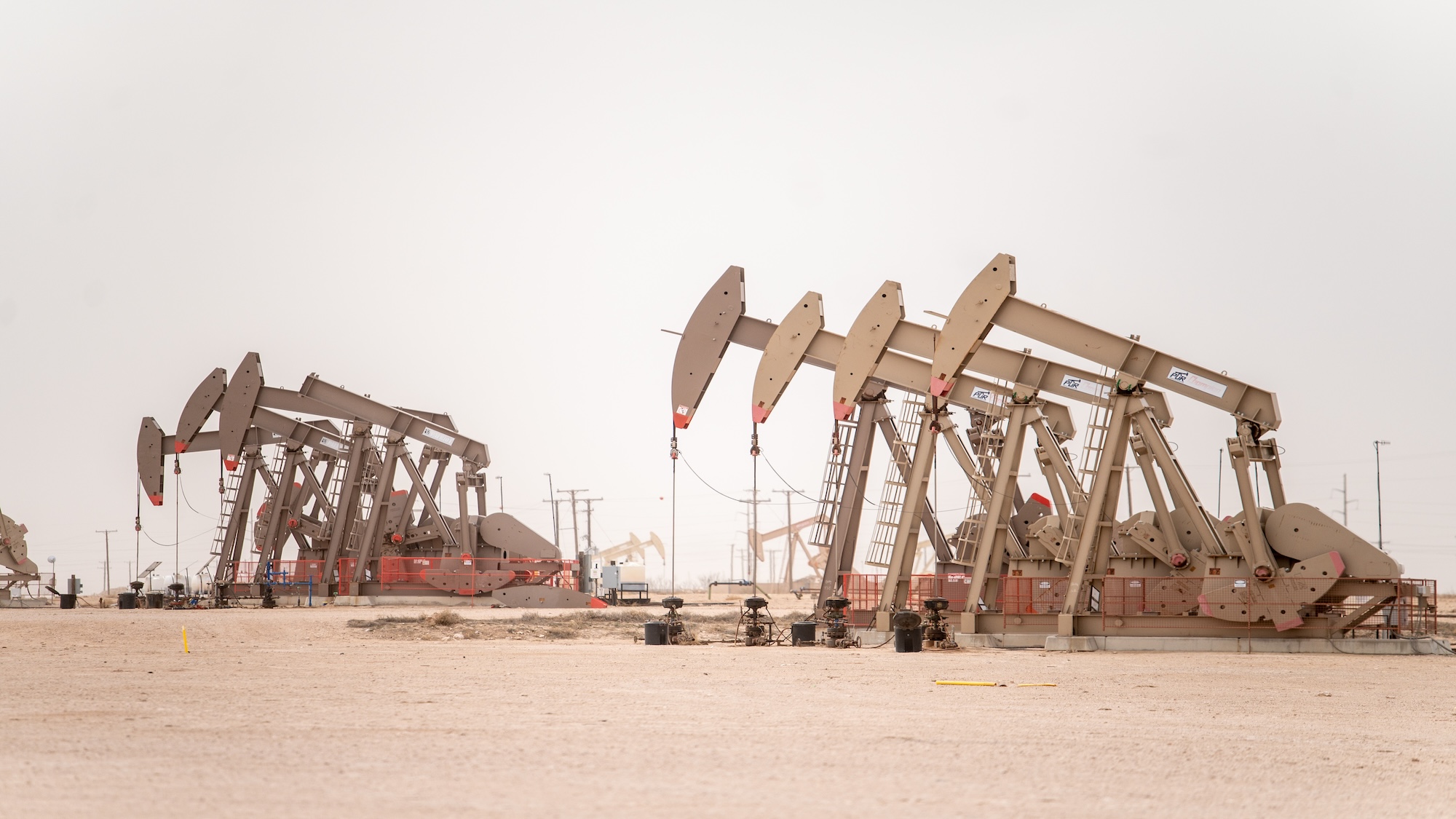 Recent mega-mergers could signal a turning point for the US oil industry
Recent mega-mergers could signal a turning point for the US oil industryTalking Point Both Chevron and Exxon have recently spent billions to acquire smaller oil companies
-
 Has Saudi Arabia lost control of oil prices?
Has Saudi Arabia lost control of oil prices?Today's Big Question Kingdom goes it alone to cut production, risking tension with US and reigniting cooling inflation in Europe
-
 US angered by Opec+ oil cut
US angered by Opec+ oil cutSpeed Read Energy prices to rise further as producers slash supply by two million barrels a day
-
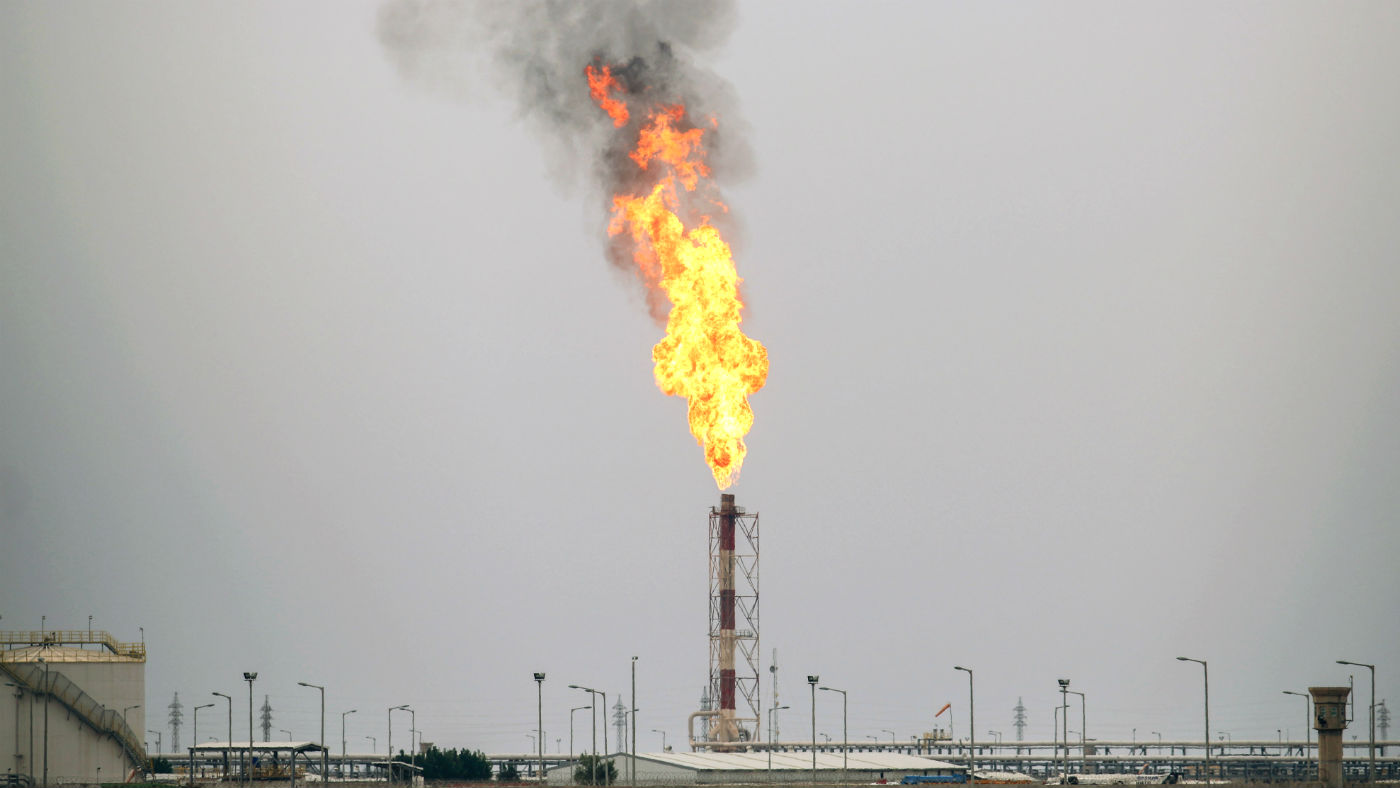 Global oil demand forecast lowered for 2020 and 2021
Global oil demand forecast lowered for 2020 and 2021Speed Read IEA report says jet fuel demand remains the major source of weakness
-
 Are US-Iran tensions flaring again?
Are US-Iran tensions flaring again?In Depth Trump threatens military action over Twitter
-
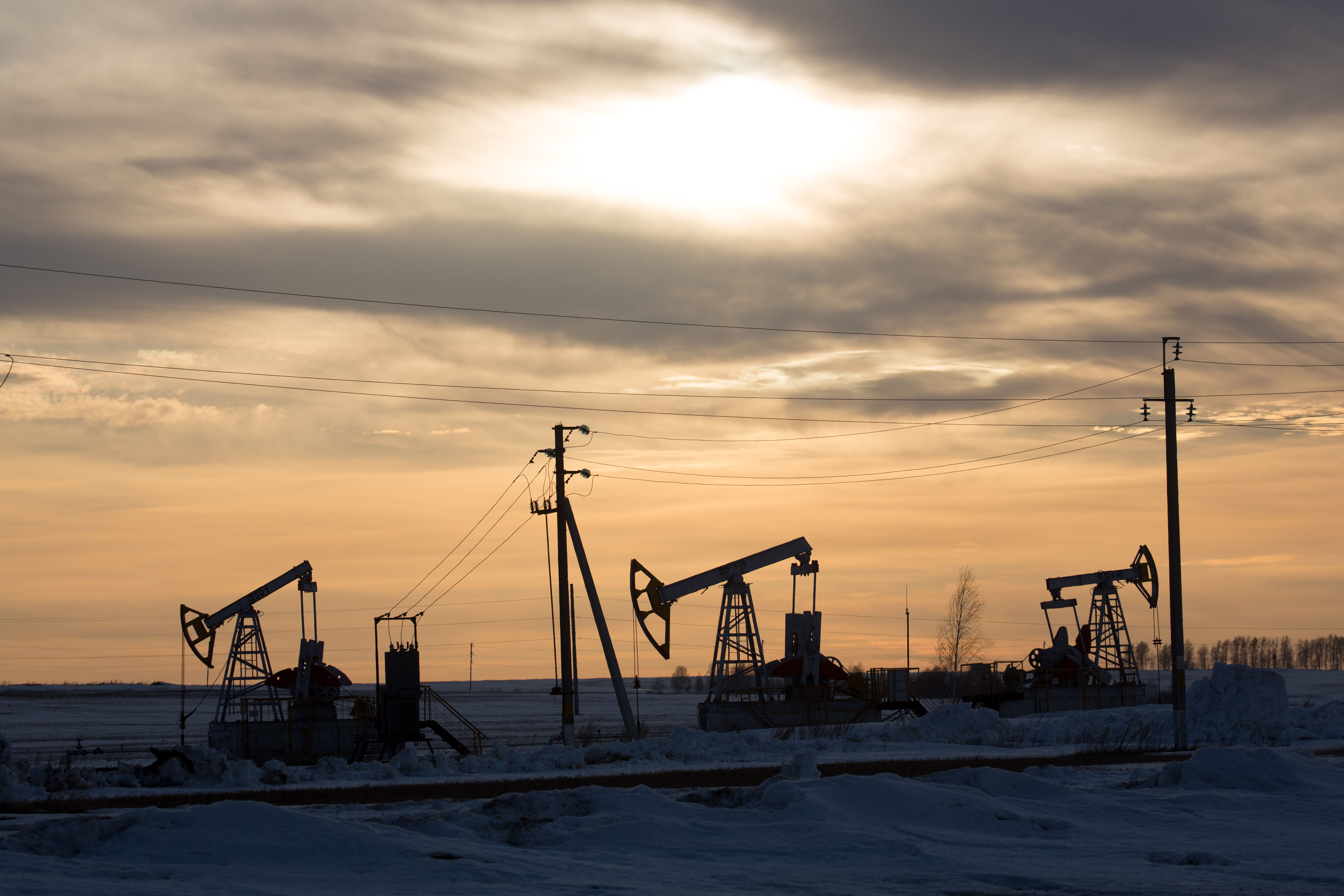 Can a deal be struck to raise oil prices?
Can a deal be struck to raise oil prices?In Depth Opec+ will convene today over video link in a bid to boost crude
-
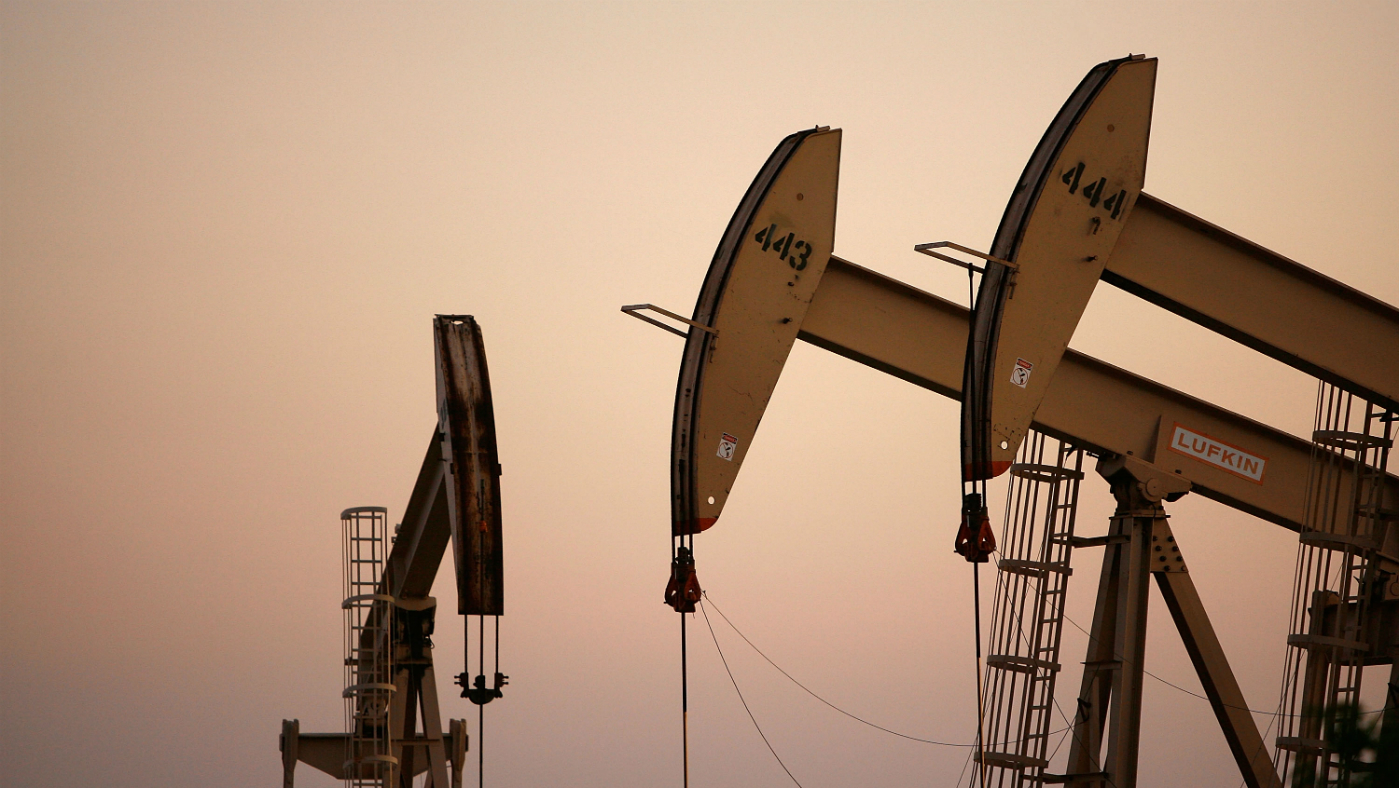 What do negative oil prices mean?
What do negative oil prices mean?In Depth Perfect storm of oversupply and storage shortages sees producers paying to get rid of US crude